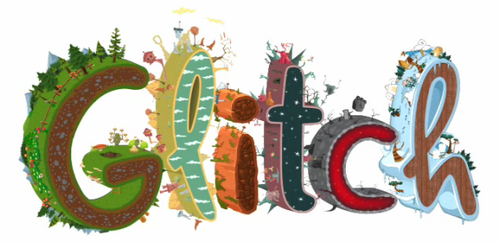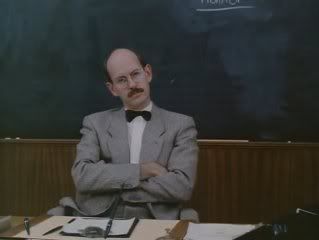
I don't think I'm making any kind of an Earth-shattering revelation when I say that I was a comedy junkie for most of the '80s. I didn't distinguish between good comedy or bad comedy, high or low humor; if it meant to be funny, I would watch it. This is why, in addition to the collective works of Zucker-Abrahams-Zucker, I've also seen movies like Morgan Stewart's Coming Home multiple times and Johnny Dangerously was considered must-see viewing in the Clark household whenever it came on television, which was often. ("You shouldn't hang me on a hook, Johnny. My father hung me on a hook once. Once!") The holy grail for me, though (until I saw Monty Python and the Holy Grail, that is), was just about any film that starred an alumnus of Saturday Night Live -- despite the fact that I was too young to stay up and actually watch Saturday Night Live at the time. The ones that I gravitated to the most were Dan Aykroyd, John Belushi, Chevy Chase and Bill Murray, the breakout stars of the original cast who had gone on to great success (individually or in various pairings) in films like Animal House, The Blues Brothers, Caddyshack, Stripes, National Lampoon's Vacation, Trading Places and Ghostbusters. Sure, not all the movies they made were gems (Modern Problems, anyone? If not, would you prefer a house call from Doctor Detroit?), but I watched them regardless. As long as they made me laugh once or twice, I wasn't too particular.
If I respected any one of them more than the other four, it was definitely Dan Aykroyd, largely because he had a hand in writing many of the films he was in, which I felt gave him a leg up over the likes of Chevy Chase, who seemed to be content to do whatever happened to come his way. (This is how a misfire like Under the Rainbow happens.) When the two of them teamed up for 1985's Spies Like Us (which Aykroyd conceived with the original intention of co-starring with Belushi), I was delighted to finally see how they would play off each other. (I didn't get to see any of their work together on Saturday Night Live until years later, so as far as my 12-year-old mind was concerned, Spies Like Us was the first meeting of their comedic minds.) And while I had yet to become a full-blown auteurist, I was aware that the director, John Landis, had also been the guiding force behind Animal House, The Blues Brothers, Trading Places and the first segment of Twilight Zone: The Movie (the prologue for which had featured Aykroyd). In short, I was ready-made to love Spies Like Us and love it I did. I even bought the 45 of Paul McCartney's theme song, which in all fairness shouldn't be considered an indication of its quality. After all, for a time I was also the proud owner of the single "City of Crime" from the movie Dragnet. (I'm sure that's something Tom Hanks would like to wish out of existence.)
Chris Woodward: December 2007 Archives
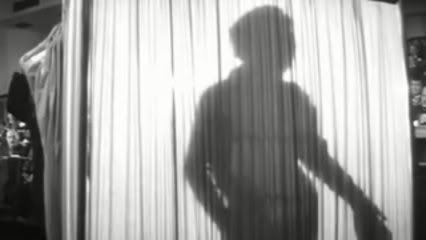
(NOTE: I am going to kill the suspense immediately by telling you in the first sentence that I loved this film and watched it twice just in the process of preparing for this review.)
In case you haven't figured it out, Craig and I have been alternating movie picks for this project. (Yes, I am the one who selected Killer Klowns from Outer Space. Insisted on it, really. I don't remember why.) For my second pick, I wanted to choose something more prestigious because, after all, this is Oscar season. When I thought about respectable, award-caliber movies from the 1980s, my mind immediately went to David Lynch's The Elephant Man, a serious, fact-based 1980 drama whose DVD cover proudly announces the fact that it was "Nominated for 8 Academy Awards." It won none of those, but still... honor just to be nominated, right?
I was first introduced to this film -- no lie -- by Joe Bob Briggs, who showed The Elephant Man as part of his long-gone, much-missed TV series, MonsterVision, in the 1990s. Doesn't showing The Elephant Man on something called MonsterVision kind of miss the whole point? Not exactly. To me, The Elephant Man has the look and feel of one of the old Universal horror films. The ghosts of such Universal directors as James Whale and Tod Browning hover over The Elephant Man.
So it's been a freakishly-busy six months for me. Aside from my normal work and my personal artwork, I've also been creating artwork for a fairly large game project called Glitch. Today, Glitch was officially announced. More info:
I also had an interview published recently on the vector art website Vectortuts. Here it is.
Lastly, if you're interested in amazingly-crazy music/art festivals, my art will be shown at this weekend's Lucent L'amour Festival here in LA. Details.
More to come very soon!
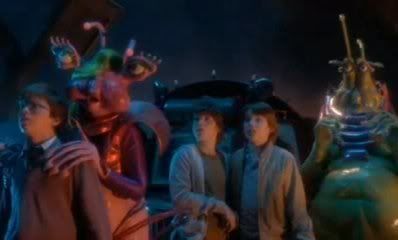
Joe Dante holds something of a rarefied place in film fandom since he's one of the dreamers who was able to break into the industry and put his own fantasies on the screen. He started out by writing reviews of genre films for fan magazines (which were later reprinted in Video Watchdog) and eventually got a job cutting trailers for Roger Corman's New World Pictures, which led to directing gigs like Hollywood Boulevard and Piranha. It was after he went out on his own to make The Howling that he was tapped by Steven Spielberg to direct one of the better segments of Twilight Zone: The Movie (the gonzo reimagining of "It's a Good Life") as well as Gremlins, which was such a major hit that it allowed him to develop a more personal project. That turned out to be 1985's Explorers, a feature-length wish-fulfillment fantasy for sci-fi geeks everywhere.
Best known today for marking the screen debuts of Ethan Hawke and River Phoenix, Explorers is mostly seen through the eyes of Hawke's pop-culture obsessive (obviously patterned after Dante), who gravitates to science fiction epics like War of the Worlds and This Island Earth, much like I was drawn to this film and watched it repeatedly when I was an impressionable young lad. Phoenix is much more down-to-earth, the rational proponent of science fact who is able to translate an image from Hawke's recurring flying dreams (which feature some Tron-like landscapes) into an actual circuit capable of creating a force field that he can control with his 128K Apple computer (an obvious hand-me-down from his computer-scientist father). To complete the trio they enlist gearhead Jason Presson, the product of a broken home who helps build and christen their spacecraft, the Thunder Road, which quite appropriately has a television screen as its main window. This is because when our three young explorers finally make it into space, they find that television has most emphatically preceded them.
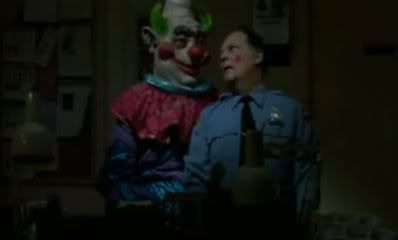
Lots of science-fiction and horror films have been built around seemingly ridiculous high-concept gimmicks, particularly when it comes to totally improbable and impractical monsters. We've had killer elevators, killer laundry-folding machines, killer tomatoes, killer beds, killer penises, etc. What makes Killer Klowns from Outer Space (1988) so special is that the movie fully makes good on the promise of its extravagant title. If you want a rollicking, highly enjoyable movie about murderous extraterrestrial harlequins, look no further.
The Chiodo Brothers -- director Steven and his siblings Charles and Edward -- have worked together and separately on a variety of film and television projects for the last 20 years or so, generally as creature designers, puppeteers, and art directors. (All three toiled on Team America: World Police.) Killer Klowns is the Brothers' one big chance to run amok in a feature-length film, and they do not waste this golden opportunity. The film feels like the kind of thing a group of brothers might come up with in giggly, late-night brainstorming sessions.
STEVEN: So our villains are evil alien clowns, right?
EDWARD: (snorting) Yeah, and maybe their spaceship looks like a big circus tent!
CHARLES: And their weapons are popcorn and balloon animals! (sprays Mountain Dew out his nose)
If the movie can be reduced to a formula, it would be: The Blob times Gremlins minus the actual monsters from those movies minus budget plus clowns plus terrible sweaters plus Dean Wormer from Animal House. That's a lot to absorb, so let me break it down.
Greetings, Unloosen reader(s), and welcome to what promises to be a bright, shining and -- for lack of a better term -- new decade. According to Arthur C. Clarke, 2010 is the Year We Make Contact, which raises the hope that this will be the year that Unloosen reaches a wider readership. To that end, Joe Blevins and I have chosen to set aside the more esoteric fare that we're known for (so to speak) and start reviewing movies people have actually seen. And so we have settled on the storied decade known as the '80s, one which is beloved by countless VH1 commentators and is known for any of a number of high-profile motion pictures. Just don't think we're doing this out of some misplaced sense of nostalgia. Sure, most of the films that we plan on writing about on a biweekly basis (starting this Thursday) are ones that one or both of us saw -- in some cases, multiple times -- during our misspent youths, but we intend to look at them afresh with critical eyes. Will Johnny Dangerously be as funny as I thought it was before I reached puberty? Do the special effects in Weird Science hold up after two and a half decades? And does one really need to sit through Ghandi more than once in a lifetime? Stay tuned to find out.


